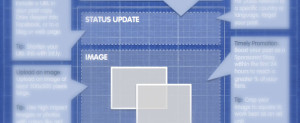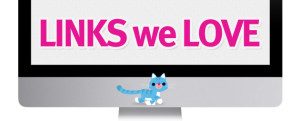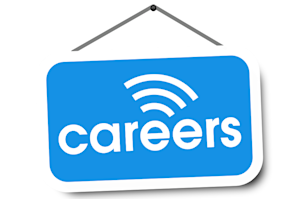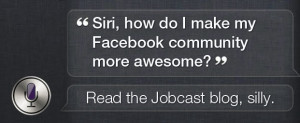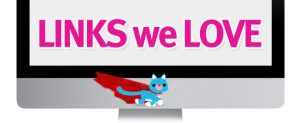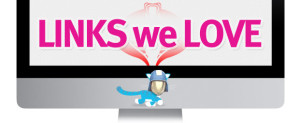Oh that age old question: What makes a perfect Facebook post?! Alright, so it’s not exactly an age-old question, but it’s certainly a good one. Making your Facebook page engaging is a top priority for social recruiting. That’s why we spend so much time on this blog writing about Facebook best practices, but words can only help so much. Which is why sometimes you simply need to consult an Infographic. This picture’s definitely worth a thousand words: Blueprint For The Perfect Facebook Post (an Infographic from Salesforce blog)
Read MoreBlog
I am a university-educated North American in my late twenties.
So I love and value three things over anything else:
My iPad
Hip coffee shops
Instagram
I also spend an inordinate amount of time taking photos of my coffee with said iPad to post on Instagram. Don’t judge me — choosing a filter that makes my image look cool-for-school is how I justify my arts “education”!
Okay, now before this turns into a gen-Y bashing session, let’s talk about something us gen-Yers love that is actually super useful. Some might even say makes the world a better place.
Podcasts.
If you are not yet on the podcast train, get on now! There’s no better way to get a free education. Seriously, you can get a free education. Check out iTunes University. This podcast from Cornell is life-changing, and Harvard shares business lectures. Bet you never thought you could get a Harvard education via your iPhone!
Getting your info from (reliable) podcasts is more efficient than from journals and newspapers, as you can listen to them while doing other things. You can listen to then while commuting, cooking, and exercising (although I still think for the weight room, you can’t beat rap).
Recently Suzanne Lucas, The Evil HR Lady herself, interviewed Steve Montako of the Boss Show. Don’t let the title fool you, the show isn’t just from the employer-perspective. It cover tons of different topics related to HR like productivity, working from home, and job interview screw-ups. The shows are nice and short and the two hosts have an obvious rapport. It’s no This American Life, but out of all of the HR podcasts I’ve heard so far, the Boss Show is hands down the most enjoyable.
Another popular HR podcast is the CYA report put out by Fistful of Talent. I’ll be honest and say it’s not my favorite. But, having worked for several years as a college radio jockey, I’m quite picky. I urge you to check it out for yourselves.
My personal favorite business-related podcast is Planet Money. They always manage to be engaging, even when covering ridiculous topics. Their explanation of the Motza Economy is fantastic, although I still think the best episode is the one on lard.
As far as non-business / non-HR Podcasts go, RadioLab is Amazing. I have actually cried while listening to episodes of RadioLab on the Subway, and was too captivated by the storytelling to even care.
Do you listen to podcasts? If so please, please, please share them in the comments.
Read MoreToday is the most important holiday in my new home, Utrecht. In fact, it's the most important day in all of the Netherlands. It's Queen's Day, or Koninginnendag in Dutch. To an outsider, Queen's Day sounds like any other boring statutory holiday. Well, at least to this Canadian it did. But, here in Utrecht, it is anything but. The Dutch are completely, utterly, head-over-heels in love with their queen. The royal colour orange is featured in every window display. Dutch men wear orange pants, Dutch women wear orange dresses, and Dutch kids wear orange everything! Orange flags hang like canopies over the parks, there's a party on every block, a flea market on every street, and people everywhere sharing bright orange pastries. The Dutch know how to do a party. They also seem to really understand community. How to build it, how to keep it strong, and how to enjoy its many benefits. We've been focused a lot on community lately at Jobcast. It is in part because we believe social recruiting is all about engaging with one's online community, but also because we're working on some cool additions to our Facebook recruiting app! Our last two posts have sought to give our readers some practical tips to grow their social networks and Facebook communities. Today we're going to look at every recruiter and employer's most important type of community:
The Talent Community
A talent community is different from a talent pool, in that it's not just a spreadsheet filled with data on potential candidates. It is in fact, a type of network created by employers and recruiters for the purpose of improving their talent pipeline (here's a definition of a talent pipeline — sorry for all the jargon!). This network usually consists of potential hires, current employees, former employees, and past applicants. This group forms a community that can engage with each other to give referrals, stay up to date on job opportunities, and simply share information related to their profession, all via social networks. Cool eh? Facebook is the perfect place to foster a talent community. Its very nature encourages engagement, and you (hopefully) already have a strong employer brand presence on Facebook. Maybe (ideally!) you even have a branded Facebook Career Page with listed jobs. Now, before we get too excited, keep in mind that unless you are hiring chocolate-tasters, potential candidates are unlikely to spend a great deal of time engaging with your talent community. If you are not offering immediate employment, active candidates will probably be more inclined to spend their time looking at specific job postings. Passive candidates will, as always, be more inclined to spend their time on Facebook Liking pictures of kittens in fancy dress. Okay, so that's the cons out of the way! Let's look at why Facebook talent communities are awesome: Easy to join
People are busy. And aren't we all sick of filling out online forms? That's a huge part of why only 10% of people who visit career sites fill out applications. To join your Facebook talent community, all they have to do is Like your Career Page. 'Nuff said. Encourages a Good Fit
The key to a successful talent community is your current employees. Get them on board, engaging with your Facebook Page, and they will be a testament to your company culture. The way they interact, and what they post, gives potential hires insight into what your company culture is like. And vice-versa. Encourages Referrals
Your current employees are always an asset when it comes to referrals. Facebook talent communities make it even easier for them to recommend their peers to you. It also creates a place where you can actively ask for referrals and get real-time answers. There's also the potential to crowdsource referrals by finding connections between potential candidates and current employers or peers. You Can Snoop
(a little, don't get creepy!) Unlike with spreadsheets, you can engage with potential hires who are part of your talent community. You can ask them questions, either as a group or selectively, to get to know what kind of talent is out there. Try asking candidates what they think constitutes a positive work environment, or what they look for in an employer. That's a whole lot of pros! Oh, and not to mention that positive interactions on your Facebook Page help to strengthen your employer brand. If you still need convincing about the awesomeness of talent communities, check out this article by Lou Adler. I'd stay around and try to convince you more, but I have a queen to celebrate, and my face won't paint itself orange.
Read MoreThere are lots and lots and lots of rules. In recruiting, in HR, in social media. In life. Although we like to say that rules are meant to be broken, for the most part, they're not. The rules are there to keep us safe from speeding cars, bad grammar, and to prevent us from alienating those around us. In general, the rules are there to keep us from becoming unpopular, well-spoken, and out of the hospital, but they do occasionally warrant a little stretching. Maybe even the occasional breaking... And sometimes, it turns out, those rules are just plain wrong and it's time to re-examine why they became rules to begin with! This week's links have a little something for the goody two-shoes, for the rebels, and also for those of us that fall squarely in the middle. Of course it's best to lead with your most controversial content. Such as, this list of productivity boosters that go against everything that general wisdom would advise.
Buffer explains how we can improve productivity through procrastination, saying no and just plain giving up. The rebel in you can rejoice and be more productive, which means more time drag-racing and shopping for leather jackets. Awesome! After waaaay too many social media gurus wrongly declaring the death of job boards, it has become pretty taboo to challenge their importance for recruiting. It may be time to break that rule though, as it looks like the popularity of job boards is starting to wain. You should probably start using the Jobcast app to recruit with Facebook, just sayin'! This next link speaks to those of us lodged firmly in the middle. More specifically, to those of us who like a good dirty joke, but only if it's both hilarious and appropriate. It discusses K-Mart's viral commercial and how, despite being attention-grabbing, it wasn't a great move as far as their branding goes. It also makes the case that humour in HR is pretty risky business and should be used with caution! Lastly, here's a gift for those of us who love rules, rules, and more rules! New rule number one, never cross your arms again, never! This Ted Talk breaks down the rules of powerful body language and how to make it work for you. Oh, and I simply can't resist. Here are some important "rules" thought up by comedian Paul Rust... His New No-Nos are so funny, you'll bust a gut. A gut is not a rule, so feel free to bust it.
Read MoreLet’s talk about community.
No, not the show. Although that would be a lot of fun.
Instead, we’re going to talk about your Facebook community. It will be just as engaging, I promise. Well… maybe not as engaging as that infamous chicken finger episode, but I’ll try my best!
Last week we learned about online tribes. We learned what they are, how they work, and what they can teach us about running our own online communities.
This week we’re going to focus more specifically on Facebook communities.
Your employer brand and Facebook recruiting efforts are dependent on this thing called reach. In order for candidates to apply for your jobs, your job posts need to reach those candidates. Your employer brand grows when it reaches a greater number of users than it has in the past. The more active your Facebook community, the better your reach. It’s your online community that shares your posts, links back to your content and refers job-seeking friends to your Facebook Career Page. As such, you should love your community as much, if not more, than hilarious sitcoms and chicken fingers.
You should also do everything in your power to make that community as active as possible. Sure, you could bribe them with hot chicken fingers, but implementing the following tips into your Facebook strategy will be far less messy:
Know what you’re working with!
By determining what stage your Facebook community is at, you can come up with a better strategy for growing it. Use this template to figure out if your community is in the On-Boarding, Established, Mature, or Mitosis stage. It’ll help you decide how to interact with your community members and what types of content to post.
The On-Boarding stage is the earliest stage of your community’s development, and it requires the most hands-on managing. You’ll need to court new members and set the tone for future interactions. This TNJ article has some great advice for this stage of online community building.
If you’ve been working on your online community for awhile, it’s probably moved on to either the Established or Mature phase. Now, you can be a little less hands-on, as you’ll want to let your community begin to dictate the kind of content you post. Pay close attention to consistency. This article covers 10 ways to accomplish this.
The Mitosis phase is when your community gets so big, that it is no longer cohesive, and has to split into smaller factions. This is something most of us will never have to deal with, unless we work for Apple or Coca Cola, in which case, refer back to this article for some advice.
But, no matter what stage you’re at, you’ll want to …
Post great content
Your content should be helpful, varied, entertaining, and in line with your employer brand at all times. Obviously that’s easier said than done. Here’s some tips:
1. Divide your posts into categories. For example, your strategy could be to make 25% of your posts into links related specifically to your field. 25% could be witty observations (this is where Seth Godin’s blog comes in super handy) or questions posed to your Facebook fans. 25% interesting non-business related content (blogs like Lifehacker are great for this type of post). And 25% self-promotion.
2. Only post content you’ve vetted. If you haven’t read, watched or listened to it — don’t post it!
3. Post content that you would want to click on. Think about what shows up on your own personal news feed, what you like about it, and what words make you click through to a shared link. What would you share with your own colleagues and friends? Let this inform your own posts.
K.I.S.S. it
Always aim for the minimum. I know it sounds a little weird, but posting non-stop is kind of annoying. Having a presence on every single social network tends to water down your efforts, and responding to every comment someone makes on your Page with multi-paragraph answers is exhausting.
So, aim to do the minimum, but do it really really well. Post solid content consistently, but not constantly. Use Facebook as your main hub and select only a couple of other networks to use, instead of trying to spread yourself thinly over every social platform out there. Keep your interactions short, friendly, and to the point.
Engage and listen, but not too much
Always respond to your community members’ questions, ask them for input, and re-post interesting comments that they leave on your Timeline. People love to feel heard and you can learn a lot about how to grow your Facebook employer brand by listening to what your current community has to say.
But, (there’s always a but!) don’t listen too much. There will always be differing opinions, overly critical comments, and people with terrible ideas. For some reason, there’s even more people like this on the internet than in the real world. Don’t worry about pleasing everyone, just pay attention, engage and always stay true to your brand. You’ll do fine.
And the final and most important bit of advice is…
Be a human
No one wants to interact with a machine. That’s why thousands of iPhones are smashed every year due to Siri’s inability to understand me as an individual… Moving on… Don’t make your Facebook Fans karate-chop their laptops. It’ll really hurt your recruiting efforts (and their hand), and they will no longer be able to email you their resumes.
Be yourself, not a machine. Respond to people in a conversational tone. Own up to mistakes or gaps in your knowledge. Avoid jargon. Make bad jokes, or even better, make good jokes.
In other words, do as I say, not as I do!
Happy Facebook recruiting.
Read MoreThe new Superman trailer is out and it’s dominating my news feed. The “Man of Steel” is taking up valuable real-estate that ought to be devoted to stories about the latest social media trends, Facebook Recruiting, and cat pictures. Doesn’t Mashable.com know that Superman is the most boring of the heroes, and that I have a very important Link Love to write!?!
Apparently not.
Superman is my least favorite hero. He is just too … well … super. It’s too unbelievable. Unlike a tortured man, who decides to dress up like a bat and get into epic battles with overly-smiley green-haired fellows. Now that’s realism!
Okay, so maybe believability isn’t the best reason not to like Superman. But really, you’ve got to admit he’s just not the most practical archetype to aspire to. No amount of martial arts training, voice modulation, nor fancy gadgets on your belt will transform you into Superman. Whereas there is still a part of me that thinks, if I work extra hard on my Jiu-Jitsu skills, I could totally take the Joker!
Practical skills, that’s where it’s at.
So, for this Link Love, let’s look at some recent articles in the blogosphere that will help you develop some practical social recruiting skills and make your recruiting a little more super!
Our very favorite post this week just happens to be about our favorite subject: Facebook recruiting! This nifty Infographic breaks down 10 easy steps to make your Facebook Page better.
Best quote of the week has to go to Michael Schrage for:
“Resumes are dead. Interviews are largely ineffectual. LinkedIn is good. Portfolios are useful, but projects are the real future of hiring”
And it’s not just this quote that’s awesome. His argument that having candidates work on actual projects is more efficient and effective than any interview could possibly be is bold, smart and practical.
TalentHQ breaks down how to set the stage for recruiting success. Hint, it’s all about planning.
Another of our favorite topics: better employer branding! Jodi Ordioni (best name ever) helps you avoid three major employer branding pitfalls. Tip number three is copy-writing gold!
And what list of practical advice would be complete without some app suggestions? None. So here are some recommendations from Inc. for apps that your business really should start using. We also, highly recommend Buffer.
Oh, and one last little piece of advice: Don’t hire the kid with lime-green hair. Trouble.
Read MoreSo, what do you think of when I say the word 'tribe'? Personally, my mind goes to a very dark place. First to hasty tattoos, then to Survivor, then to cast members of Survivor, covered in tribal tattoos, trying desperately to get more screen-time — by exposing their tattoos. A very dark place indeed. Hopefully you are far more mature than I am, and your first thoughts were, "Oh, tribes! Like communities, right?" Right! More specifically, we're going to discuss tribes in regards to online communities. Waaaay back in March, a bunch of research came out about the emergence of "Twitter Tribes". Basically, they're tightly-knit communities, forming on the social network, who shared specific interests and language. Language being the main identifier because, well, it's Twitter, not Instagram. But, why should we care about online tribes?
Other than the obvious reasons, like finding others who shared our obsession with Justin Bieber, we should care about tribes because of what they can teach us about creating, growing, and managing our own online communities. Brand visibility on social networks like Facebook is dictated by the ability to engage one's online community. When we talk about increasing Page Likes, gaining Twitter followers, and making job posts go viral, we are talking about online communities. That's where the Likes, Follows and Shares are coming from. Tribes are communities on steroids! Okay, not really. They are actually smaller than regular communities and would be more likely to spend time on bodybuilding.com forums, than actually pumping iron. Yet, they are very socially active communities. Tribes share, Like, and retweet stuff like crazy, which is what you want people to do with your content, and more specifically, with your job posts. So what can we learn from tribes? Words Matter
Online tribes use specific language. Sometimes it is very silly, like 'chillin', and sometimes it's not even recognizable as language, like '<33' (see Beiber Twitter Tribes for more examples). But no matter the specifics, what's important is that the language is shared, and that it is consistent. The takeaway: Use specific, consistent language when posting content and interacting with your online community. Choose words that represent your employer brand and fit with your company culture. This will encourage your online community to do the same, ensuring consistency, and helping define your online brand. Don't Have an Identity Crisis
Part of what makes using specific language so important to online tribes is that it acts as an identifier. Identifying as part of a group is important to people at a very base level. It's why we seek out community to begin with. Tribes use language, repeated themes, and naming to craft strong group identity. The takeaway: Create an identity for your online community. Name your community. For example: Bronies. These are adult male fans of the animated series My Little Pony. They are an extremely active online community, so instead of judging, we should learn from them. And then judge. Identification via naming is also important for content and events. Use the language you've created to help determine what to name your community events and use consistent naming for types of content. We've named our Wednesday blog posts "Link Love", so they are instantly recognizable to our community. Get Cultured
Tribes have their very own culture. The way tribe members interact with each other and conduct themselves is dictated by that culture. Shared values, behaviors and interests, as well as language, make up a tribe's cultural identity. And, as mentioned above, it is that identity that binds a tribe together, thus distinguishing them from regular online communities. The takeaway: Understand what your online community's culture is and let that understanding help shape your content and interactions. By keeping tabs on how your community members interact, what they share, and what they Like, you can determine their values and interests. Which allows you to tailor your own content to stay in sync with your community's culture. Encourage and celebrate that culture with your content, your comments, and even the occasional reward (like a promotion or contest). Tribes form naturally amongst humans. You really can't force your Fans and Followers to become a tribe, but you can interact with them in ways that promote more tribe-like behaviors. Just remember, language, identity, and culture. And Bronies, remember to Google Bronies.
Read MoreIt’s time for another edition of Link Love Facebook Style.
Not to be confused with Link Love Gangnam Style. Which sadly, I will never actually get to write, as it would make me look very behind the times, which is basically a death sentence in the land of social media. Missed the boat on that meme big time.
Thankfully for my blog-writing, Facebook is a never-ending source of updates, policy changes and (Sponsored) stories to report on. It also doesn’t hurt that, at Jobcast, Facebook is our bread and butter. So, sorry developers, your frustration is this girl’s literary gold!
And heavens to Betsy (yes, I’ve been watching Mad Men), this past couple of weeks, the Facebook related news has been extra juicy. What better way to celebrate than by linking to other peoples’ blog posts? Maybe with pizza and cake, but Link Love is far more artery-friendly. So there.
Obviously, the biggest headline is the release of Facebook Home for Android (sorry iPhone users, self included). And leave it to GigaOm to write a hilariously sarcastic yet super informative article all about it. This article outlines the pros and cons of Facebook home and provides lots of screenshots/animated gifs.
Best line:
“Should I Buy It? If by buy you mean buy the HTC First, which is pre-loaded with Home, no, because Home is a free download and the HTC First is a junker.”
Sooooo sassy!
Next up, Jill Duffy warns about the possibility of unwanted Facebook (Home) invasion. And she set me up for that killer pun! Love her.
Facebook Threaded Comments are another recent release from the social network. The new API is a much less sexy topic than FB Home, but more relevant to Facebook recruiting and branded Pages. Here the social network itself outlines how the new Facebook Threaded Comments are going to work.
Even more recently, Facebook announced that it has opened its Graph API to allow developers to create tools that manage Threaded Comments.
Companies like Conversocial are moving fast to capitalize.
Last, but not least… well kind of least, actually. Facebook is testing out new language to try and get more users to buy Promoted Posts. They’re hoping that using terms like “Boost” and “Advertise” will be more enticing. Personally, I think the updates to Facebook’s News Feed will be a huge push for Page owners to pay for advertising, but that’s just me.
Oh, and it might also have something to do with just how slowly Facebook is rolling out the changes to News Feed.
Well, there you have it! Two more links than usual, I’m on fiiiiire.
Happy Linking!
Read MoreLast Monday we covered what Big Data is. No, it is not Starfleet Lieutenant Commander Data’s rapping name. Almost as cool, it is an abundance of information that can be leveraged by employers to improve their social recruiting. We also delved into how Big Data can be used to find candidates. How it can be a boon for talent-mining and help recruiters to separate the cream of the crop from a myriad of less creamy resumes. That sounds a bit gross, let’s move on.
The hiring process involves more than just getting candidates interested in your jobs. It is also about finding candidates who fit with your company culture, who will be a positive addition to your team, and who will be productive in their roles.
Finding the right candidates.
HR can leverage Big Data to find the best possible hires. Collecting and analyzing existing data about top performing employees and comparing it with information about prospective employees makes candidate selection a more scientific and successful process.
You might be surprised by the type of data that you should focus on. Yes, it’s a good idea to look at employment history and education, but things like hobbies, health, location and personality traits are as important, if not more so. Employees that sleep more, tend to take fewer sick days and, interestingly enough, employees that are active on multiple social networks tend to be more productive in general.
Comparing this kind of data from prospective candidates with your current top performers is a smart way to hire. A small warning though, it is important that you use a consistent template for each candidate you interview and pay close attention to any legal issues on discrimination when hiring based on personality traits vs experience.
Retention
Gathering and analyzing diverse data sets is also useful in making informed estimates about candidate retention. For example, employees who live closer to their place of work, stay in their positions longer. So when hiring it makes sense to consider a candidates location. As such gathering data of this kind is very helpful to the hiring process especially if attrition is an issue.
Big Data can also be used to understand why employees vacate positions and to come up with solutions to keep them. Google recently used Big Data to explain their unusually high attrition rate for female employees and then implement an effective solution to the problem.
As we all know, employee morale is an important influence on retention. Using apps like Morale.me is a great way to keep tabs on morale levels, so that adjustments to company culture can be made if needed.
Metrics!
Back to social recruiting for this one. Metrics are so important when it comes to recruiting strategy, and without detailed insights about how previous recruiting campaigns were conducted, there’s no way to measure success. Understanding how, where, and why previous social recruiting campaigns were successful (or not) is fundamental for effectively planning future campaigns.
That’s why Jobcast always provides metrics with our recruiting app, even for users on the free plan. Gathering and analyzing data about your previous campaigns will show you how applicants found your job posts, which social networks attract what kind of candidates, and how often you need to post jobs and content in order to get the best recruiting results.
These are just a few practical ways to use Big Data for better social recruiting practices and hiring in general. There are so many more! If you are interested in a more complex break down of Big Data, here are a serious of articles you can read. But be warned, they require a substantially greater time investment! Hopefully these ideas are helpful for your recruiting efforts.
Also, hopefully there really is a rapper called Big Data. If not… I may consider a change of careers. I wonder if there’s any good big data on the success rates of Star Trek-themed hip-hop groups who rap without emotion and like cats. Check.
Read MoreBig Data is powerful stuff. And, as all good employers and recruiters know, with access to such great power, comes great responsibility. Jobcast believes in using our blog for the forces of good, not evil. Which is why we try our very best to help employers find great talent through helpful tips and guides to social recruiting. Okay, so not quite as impressive as GI Joe protecting the world from the clutches of Cobra Command. But, pretty close, right? In the spirit of GI Joe, today's Link Love is all about using Big Data for good! Big good! For the good of employers, for the good of employees, for the good of the world: This app is so cool! Morale.me is a new app that aims to increase productivity by improving employee morale. Talk about a win-win situation! The iPhone app allows employers to connect via LinkedIn accounts, submit monthly feedback, access Foursquare-style engagement and anonymous assessments, utilize month-by-month, on-the-go tracking. It's also really pretty. So so cool. Evolv recently gathered up a bunch of data about the effect of using social networks on productivity. They determined that "hourly employees who use social networks are more productive in general, but it seems the more social networks you use, the more productive you are." Sharing is caring!
Skillshare is a new company looking to fill the skills gap by sharing knowledge through inexpensive (only $20) online courses. Professionals share practical knowledge of their field that they have gained hands-on. What could be more noble than creating exciting infographics to spread knowledge and joy to the public?!? Absolutely nothing of course. Here's how to source Big Data through social media to inform your next infographic. And for the sake of all that is good in the world, if you do end up making your own infographic, let us know! Our last link is for the Complaint-Free April Challenge. It has nothing to do with information or recruiting, but I would argue that it could lead to a far more positive work environment. Which could lead to more attractive company culture and better retention, which is very appealing to top talent. So there! I'm giving it a shot and thought it might make for a fun company team-building challenge too. Happy Linking! If you have any complaints about the articles we've chosen to link to, please save them for May ;)
Read More